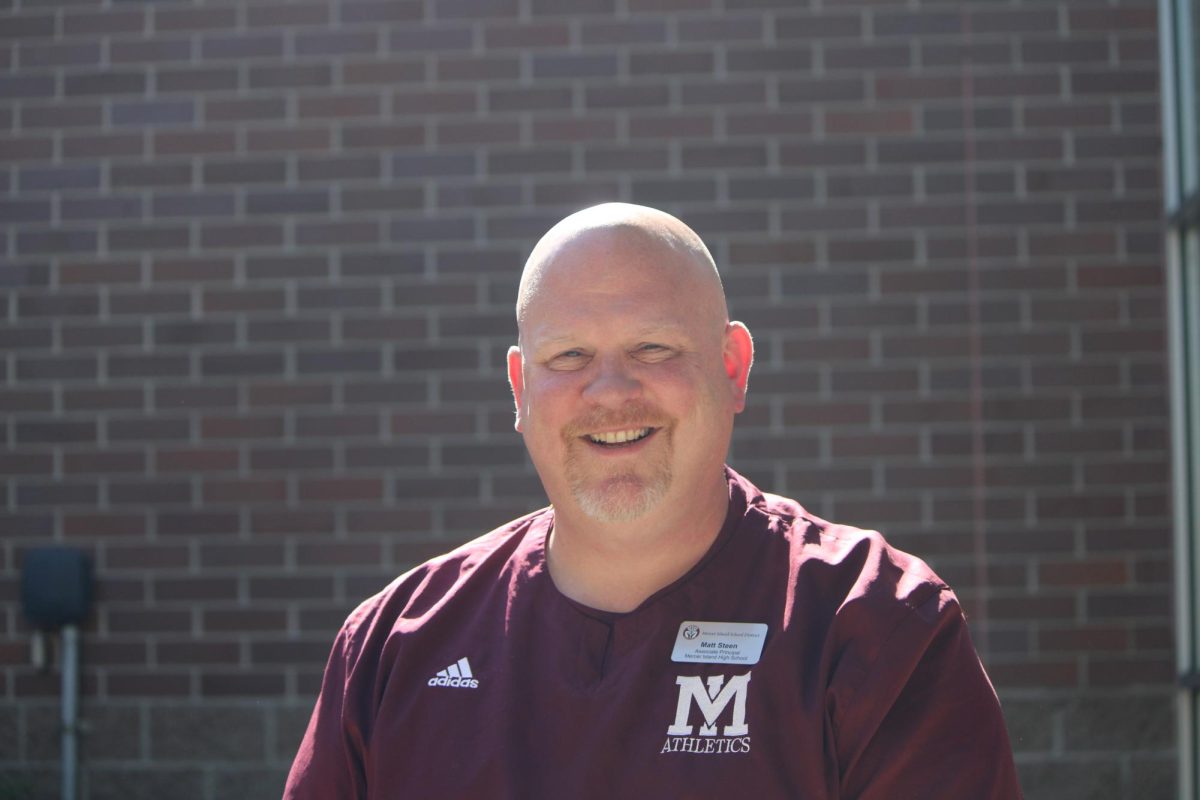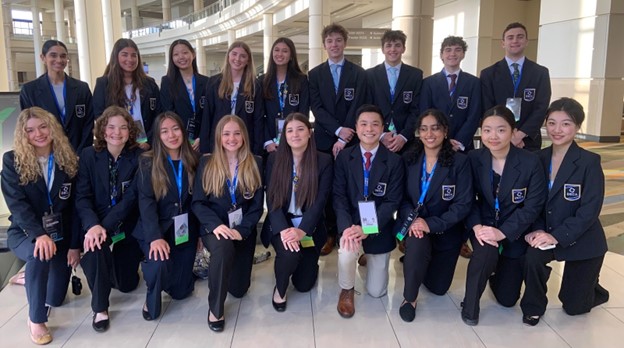During this 2024 election cycle, much of our attention is caught up in the national political stage, and for good reason. On both sides, the election is portrayed as a battle for the future of America. But while national politics continue to be embroiled in chaos, another dispute is coming to a head in Washington state, one that may provide a blueprint for what American climate policy will look like when the dust settles.
“Look, when your kids can’t go outside and play and your senior kids are not able to breathe because they’ve got asthma, it’s pretty convincing to the legislators that we’ve gotta do something,” Governor Jay Inslee said.
In 2021, the Climate Commitment Act was passed through the Washington State House by a sizable eleven-vote majority and in the Senate by only a difference of one vote, and was signed into law by Democratic Party governor Jay Inslee. The act—which aims to reduce the state’s greenhouse gas emissions by 95% by 2050—has been a landmark piece of legislation for the United States, and its so-called cap-and-trade program is representative of one of the most proactive attempts to combat climate change in the nation. However the bill is not without its critics, with Republican Rep. Jim Walsh claiming the bill has funneled billions of dollars into the pockets of Olympia bureaucrats, paid for by raised prices at the pump for Washingtonians.
On the ballot this fall is Initiative 2117, which seeks to repeal the Climate Commitment Act, a decision which would have major and lasting effects not only on Washington climate policy but also on funding for public services, transportation and green energy alternatives. Inslee, one of the staunchest opponents of the initiative, sat down with student journalists to give his pitch for why Washingtonians should vote “no” on I-2117.
While Republican legislators have framed the initiative as an opportunity for Washingtonians to get rid of cap-and-trade and lower their gas prices, Inslee instead frames it as an attempt to trick Washingtonians into forfeiting the progress they’ve made on fighting climate change.
“I’ve seen a lot of times [when] people will put things on the ballot figuring that people won’t really understand what it really does, but when people really understand what it really does they become disenchanted with it, which is the case with this initiative,” Inslee said. “There is nothing in this initiative that guarantees lower gas prices, nothing. There is no guarantee that will force oil companies to lower their gas prices. They could have written that into this bill but they did not. So the only thing this initiative guarantees is more pollution. That’s the only thing you know for sure with high level confidence you’re going to get.”
The cap-and-trade program in question was one of the hallmarks of the Climate Commitment Act, and implemented a new legal cap on the amount of carbon companies were allowed to emit each year. To go above this cap, companies would have to buy allowances sold by the government, which would provide additional flexibility while financially disincentivizing pollution.
This disincentive, claim some Republican legislators, is to blame for higher gas prices, as oil companies are forced to raise prices to compensate for buying allowances. Inslee argues back that there is no substantial evidence that this is occurring, and that even if so it points more to the instability of oil as a long-term energy source than any fault in the Climate Commitment Act.
“Now we’re glad to know that the price of gas has gone down, it’s darn near as low as it was when this law went into effect,” Inslee said. “Look Washington has always been [in terms of oil prices] one of the tops in the nation for a hundred years before this initiative ever came out, so it’s really disingenuous to blame this initiative for that situation. But the way to reduce gas prices is [to stop using] the stuff by getting help for people to not have to burn it. That’s what this initiative does, first off by giving free bus rides to everyone age eighteen and under, and as I’ve indicated there’s already 8 million people that have enjoyed that. Second, we’re helping people get access to electric vehicles so you’re not a slave to the pump … your price for gas goes to zero. That’s the best price that we hope can be achieved. We believe this is a way to help Washingtonians find more reasonably priced energy over time, because we know that the price of fossil fuel as a finite resource [will always increase], so we’re going to non-finite resources. We have three of the best fusion companies in the whole world right here within ten miles of the Space Needle. So we’re going to more advanced forms of energy that won’t be tied to Texas or Saudi Arabia. That’s good for our pocket books ultimately.”
That final note was repeated by Inslee later, emphasizing the protectionist aspect of being able to keep resources within Washington.
“Right now we’re sending our money to Texas and Saudi Arabia when we burn oil, and we want to recycle that money back here,” Inslee said. “When these permits are purchased, it’s recycled right back to Washingtonians rather than sending the money to Texas.”
Another accusation levied against the Climate Commitment Act is that the cap-and-trade program has not been successful in lowering greenhouse gas emissions, but Inslee sharply rebukes these criticisms, countering that written into the structure of the law itself is a cap on the possible amount of carbon that can be emitted.
“We’ve reduced our emissions per unit by something like 30% in the last several years,” Inslee said. “Because we were in the course of doing a whole host of things to electrify our economy, and to reduce our emissions while continuing economic growth … The first thing I would say is that the law is a binding law, and this is a thing that is forgotten most frequently about the Climate Commitment Act … So it has a legally binding limit on pollution, you cannot permit more than the identified tons of carbon dioxide in the state of Washington, regardless of the financial ramifications of this, because it sets a cap on emissions, and it only allows so many permits to be issued for emitting a ton of carbon dioxide [above a] certain level. Then that level, that legally binding cap, is lowered every year.”
However, Inslee also emphasizes that the shift away from fossil fuels is not just on paper, as the Climate Commitment Act also provides tangible funding for green energy alternatives.
“So that’s the first thing, the second thing is when you switch from a gasoline powered car to an electric powered car, you reduce emissions,” Inslee said. “It doesn’t take like a big rocket science to figure that out. We’re doing that in so many ways, look people are getting free bus rides … instead of sitting in traffic in a car polluting, we have got folks using heat pumps, solar panels, wind turbines, you name it. So we can identify the thousands of ways people are making the transition to today’s technology rather than yesterday’s technology … So I would say those criticisms are more than modestly wrong, I’d say they’re about 180% wrong. Both because we legally reduce emissions and we’ve given people the mechanism and means to do so.”
To Inslee, the bill is not really founded on these faulty premises though; instead, he argues that it is a disingenuous attempt to put the state of Washington in danger for the sake of wealthy oil companies.
“To some degree I’m kind of circumspect when people ask me about somebody else’s motivation, cause you should ask them what their motivation is, but I would note that they could have written something in here to say that [oil] companies have to reduce their prices, but they didn’t do that,” Inslee said. “So apparently maybe they’re more interested in oil company profits than children’s lungs. I think that’s sad. I think it’s sad that they want to deny climate change is a problem for your generation, which they effectively do. The guy they support says climate change is a hoax, everyone in this call know’s it’s not a hoax. It’s a great danger. They want to say that wind turbines cause cancer. I think it’s sad when you deny obvious scientific fact that everyone who’s fifteen years old on this call understands. So I’ll just leave it at that, I’m disappointed in them to say the least.”
One concern to many Washingtonians, however, is the increasing role of money in influencing state policy. Wealthy individuals have had a massively outsized influence on the campaigns both in favor and against I-2117, including initiative sponsor Bryan Haywood who donated $1 million, and Bill Gates and Steve Balmer who donated a total of $3.5 million against. However, Inslee does not see this as necessarily bad, and believes it is important for state politicians to be able to effectively communicate to voters the real contents of I-2117.
“Well I’m for vigorous debate, and for any side of this letting people know what this initiative does or does not do is fine,” Inslee said. “I think it’s unfortunate that one person financed this and put this on the ballot. You’ve got dozens and dozens of people who are speaking out against it including financially, and helping people understand the consequences if this was taken away from Washingtonians. So I think it’s fine to have a debate, the proponents of this bill have tried to hide the ball on this thing, they tried to deceive Washingtonians by hiding the fact of how much it would take away from Washingtonians.”
Expanding on the last claim, Inslee further explained what he described as a deliberate attempt by promoters of the bill to obfuscate the contents of the initiative from the voters. “They tried to hide [what would be eliminated by the initiative].” Inslee said. “There’s a law now that when you do that, and you take something away from Washingtonians you have to tell them about it legally. You have to put that right on the ballot and they tried to hide that, they actually went to court–this is really unbelievable to me they were so shameless–they went to court to ask the judge to ignore the law. The judge says what are you thinking and slapped them down, so when you see this on the ballot you’ll see a provision talking about all the things that this would take away from Washingtonians, they got caught with their hand in the cookie jar.”
This battle is especially important in a moment when the status of state governments is being reassessed nationally, with some like Republican Rep. Marjorie Taylor Greene even calling for a “national divorce.” As the national government has become more gridlocked and polarized, state governments have become a more and more attractive venue to actually pass the kind of legislation that the people are asking for. Despite this, media vacuums have opened up in regards to state and local politics, and people are less engaged with the operations of their state governments than ever before in history, something Inslee laments and hopes will improve in the coming years.
“I totally agree with the premise, people need to pay more attention to state governments, particularly in this fight against climate change, because it turns out that states can be more effective than federal governments because we can go faster and further,” Inslee said. “You know, we’ve made real progress federally under President Biden and Harris with the Inflation Reduction Act and the Infrastructure Bill. They’ve been tremendous in allowing us to help people build thousands of clean energy jobs, but we can go even further, farther, and faster in our state, which we’ve done with the Climate Commitment Act and a host of other bills to help build things on top of what they’ve done … Because we frankly can go faster than Mississippi because of where we are as a state.”
In the current era of American politics, Inslee is optimistic about the future of Washington, which he views as more scientifically rooted and progress oriented than the rest of the nation.
“We’re so technologically oriented and we get science, we know that people who say climate change is a hoax are just flat wrong, so we can go faster than the federal government and we are going faster than the federal government.” Inslee said. “So I just got back yesterday from New York at Climate Week, me with climate leaders from around the world. I always tell them when we go to the UN and the United Nations refers to our states as subnationals, I say no no that’s wrong, we’re supernationals. We’re supernationals not because we have super powers but [because] we can go faster and we are [going faster]. This is the best climate law in the United States, we rightfully are proud of it, and to shoot ourselves in the foot when we’ve been leading the country with the best laws in the country would be a big step backwards. We go forwards in the state of Washington.”









